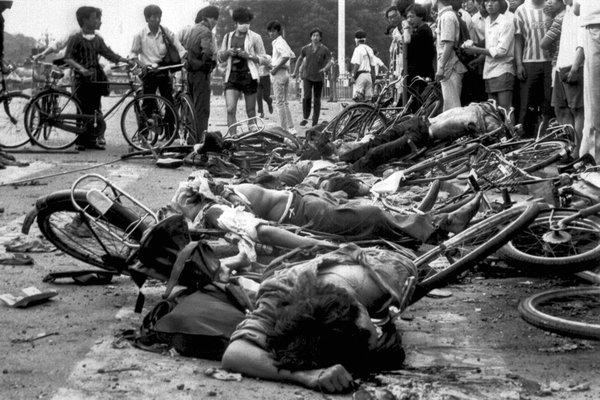Category: China – Domestic Affairs
Chinese Internet Censorship
The results of an undercover study:
Surprisingly, posts that criticized China's government, its leaders, and its policies, as well as those about sensitive topics such as Tibet, were generally allowed to be published. "Criticisms turn out to be of tremendous value to China's leaders," says lead study author Gary King, a social scientist at Harvard University. "They are a great way of figuring out who's not doing a good job, of seeing which of the roughly 50,000 local governments is being led in a way that is not satisfying people and keeping them in check."
However, posts that mention collective action such as a gathering or protest are often censored, even if they support the government.
"When citizens are able to act collectively in one arena, such as supporting the government, that means they could act collectively in other contexts as well, and the state wants to limit people getting together outside of state control," Pan says. King noted this helped the Chinese government "keep a monopoly on mass action. They don't want someone with the power to move people unless it's the government."
Hat tip: Instapundit
Chinese Get Off On James Foley’s Decapitation
Guess they know what their audience likes…
Well, Lee Teng Hui DID tell the Chinese, “Let my people go!”
River In China Mysteriously Turns Bloody Red Overnight
Xi Jinping's first-born son may not be sleeping well tonight…
China To Flatten 700 Mountains
Creating more flat ground for urban development.
I'm sure they'll be great environmental stewards in the South China Sea…
Seven Unpeople At Taiwan’s China Post
Profiles of seven of China's most prominent political dissidents.
Oddly enough, there's never been much mention of them in the pages of the China Post – a paper which styles itself as Taiwan's "Chinese nationalist" newspaper.
Perhaps they ran all out of ink after printing David Kan Ting's numerous fawning columns about Communist princeling Bo Xilai…
Tsai Eng-meng Wishes You A Happy Tiananmen Square Festival
And now, a few words from the owner of one of Taiwan's largest media congomerates.

Red Fat Cat & Tiananmen Square denialist Tsai Eng-meng
Would he lie to you?
i-1
Tiananmen Square Massacre
Nothing to see here. Move along.

Image of the Tiananmen Square Massacre from the New York Times
The New York Times has an interesting detail I was not aware of:
…top army commanders were summoned to headquarters to pledge their support for the use of military force to quash the protests.
One refused.
In a stunning rebuke to his superiors, Maj. Gen. Xu Qinxian, leader of the mighty 38th Group Army, said the protests were a political problem and should be settled through negotiations, not force, according to new accounts of his actions from researchers who interviewed him.
“I’d rather be beheaded than be a criminal in the eyes of history,” he told Yang Jisheng, a historian.
i-1
Familiarity Breeds Contempt
One of those seemingly insignificant stories exposing truths some have worked assiduously to paper over:
Child of Chinese tourists takes a leak on the street: Hong Kongers deride boorish Chinese; Chinese incensed by "highfalutin" Hong Kongers.
Communist China Leans On Western Media To Spike Unfavorable Coverage
Zhongnanhai frowns upon exposes of Princeling corruption:
Mr. Winkler defended his decision [not to publish an investigative report about Chinese Communist Party corruption], comparing it to the self-censorship by foreign news bureaus trying to preserve their ability to report inside Nazi-era Germany, according to Bloomberg employees familiar with the discussion.
Sinofascism is not a dinner party.